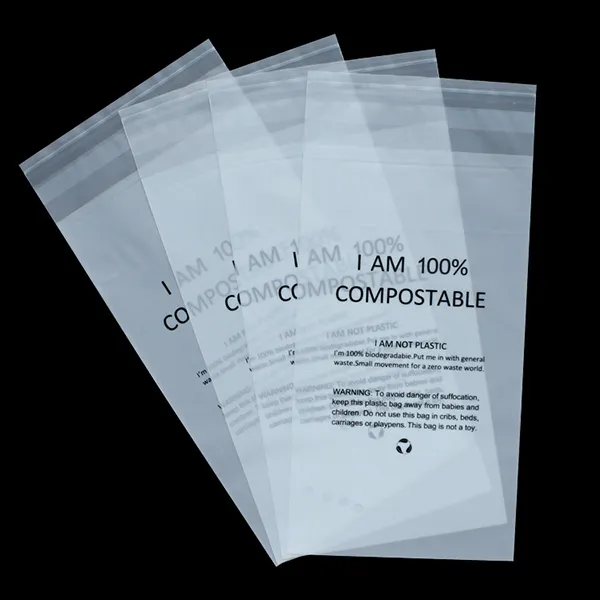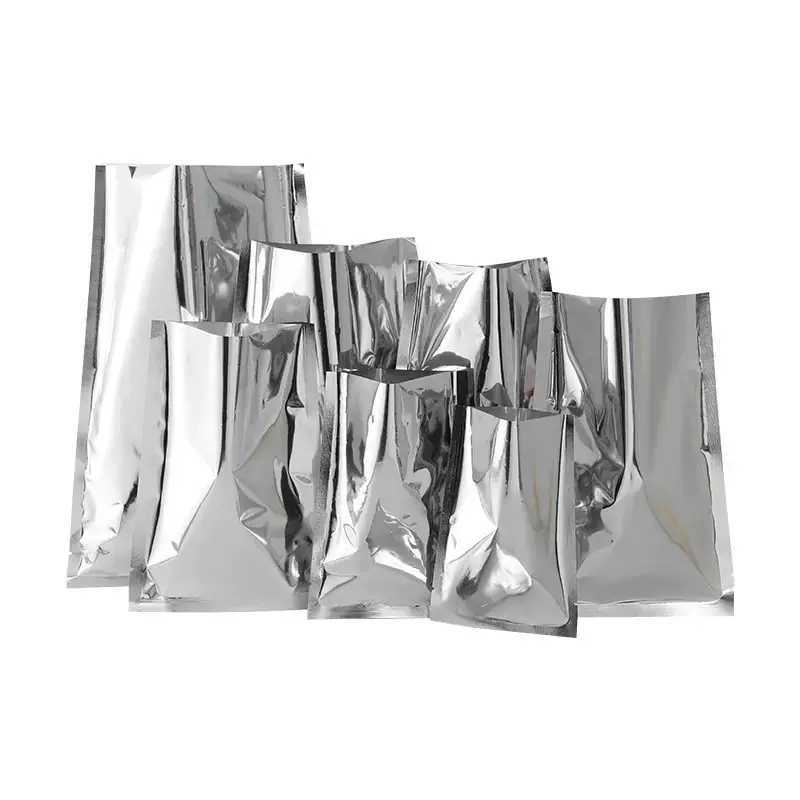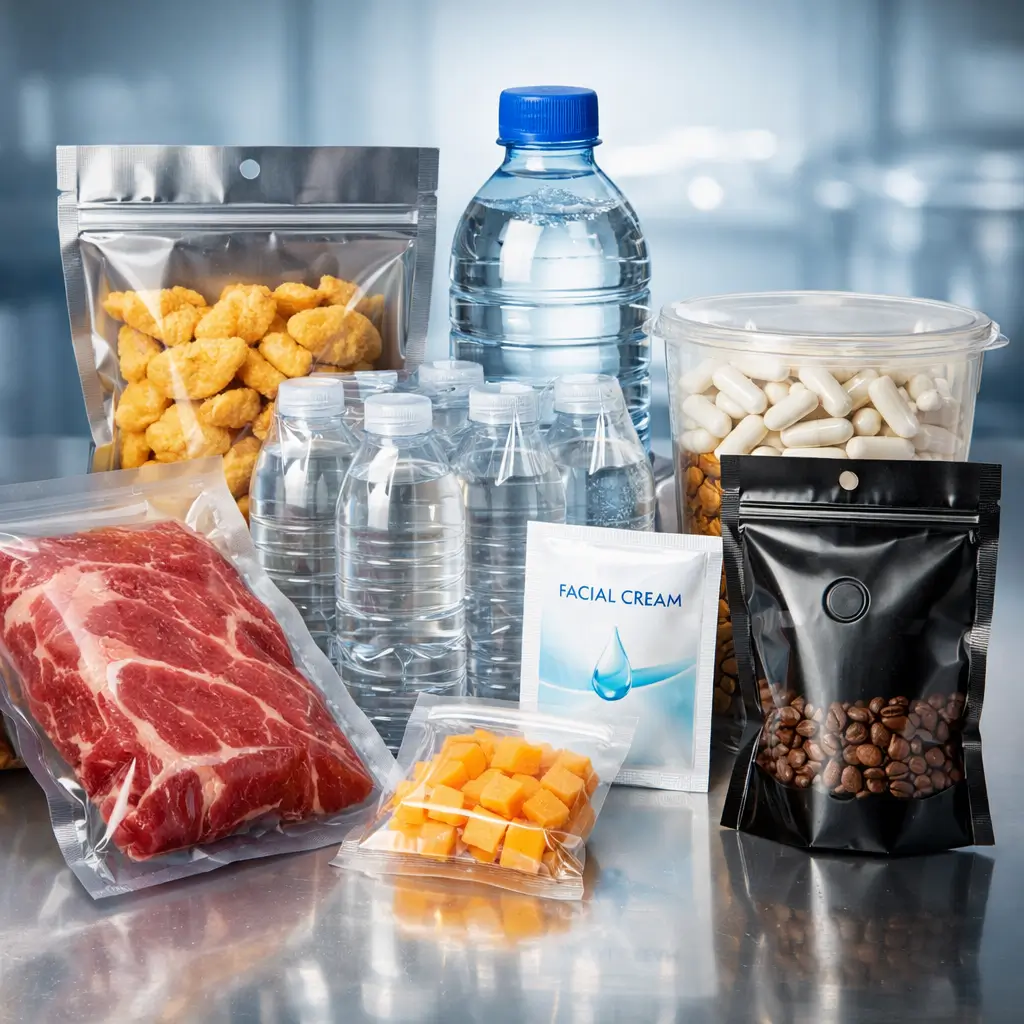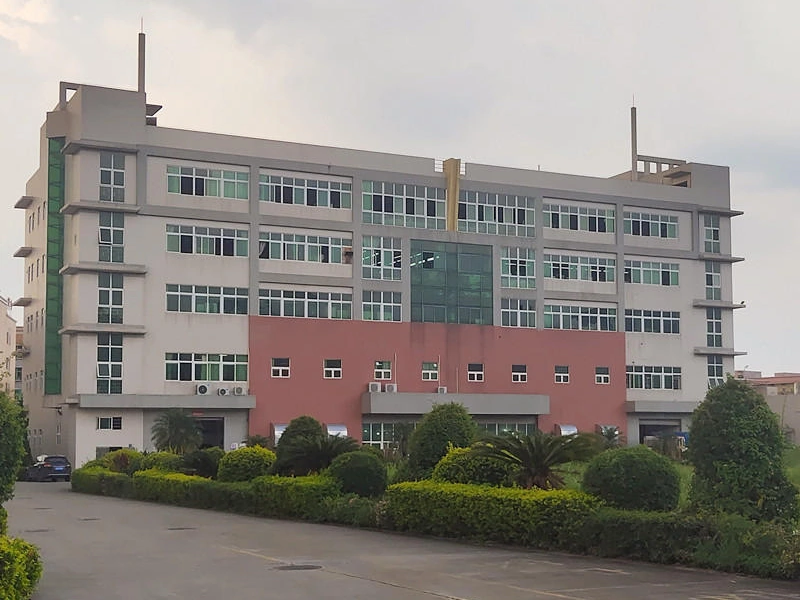Packaging bags, as an indispensable component of modern life and industry, are widely used in food, daily chemicals, cosmetics, electronics, industrial products, and other fields. With the upgrading of consumer demand and the deepening of environmental awareness, the packaging bag industry is constantly developing and innovating.
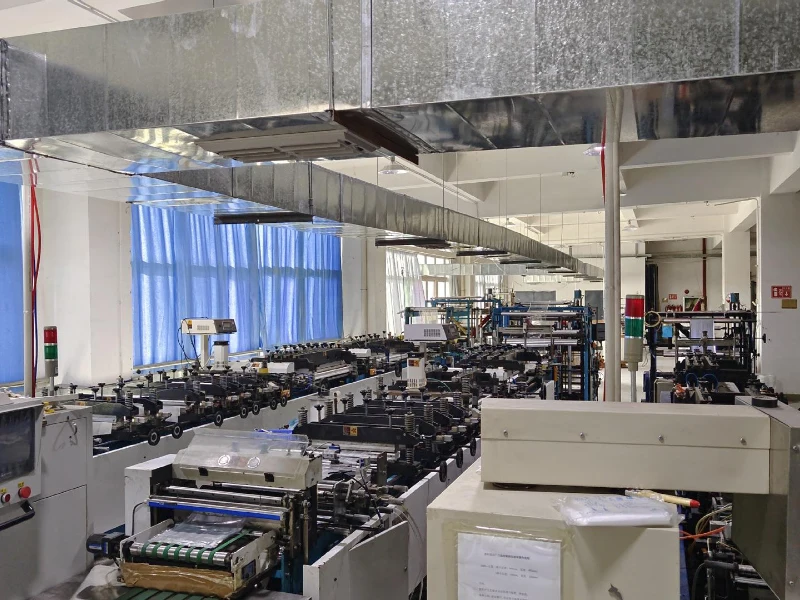
Common Packaging Bag Classifications
Material Classifications
Plastic bags: Made primarily of materials such as PE, PP, PET, and CPP, they are lightweight, moisture-proof, and dust-proof.
Paper bags: Such as kraft paper bags and white cardboard bags are biodegradable and offer outstanding environmental performance.
Aluminum foil bags: They offer strong barrier properties, are moisture-proof, and resist oxidation, and are commonly used for pharmaceuticals, coffee, and tea.
Degradable bags: Made of materials such as PLA and PBAT, they align with green and environmental trends.
Structure Classifications
Ziplock bags/Zipper bags: They are easy to open and reseal, suitable for food, cosmetics, and daily necessities.
Stand-up bags (Stand-up bags): They can be displayed upright, enhancing shelf appeal.
Vacuum bags: They remove air from the bag, extending the shelf life of food. Special-Shaped Bags: Customizable to the product’s shape, enhancing brand recognition.
Packaging Bag Functions
Protection: Moisture-proof, oxygen-proof, and contamination-proof, maintaining product quality.
Convenience: Easy to open, carry, and display.
Marketability: Convey brand value through printing and design, enhancing consumer purchasing desire.
Environmental Protection: The use of recyclable and biodegradable materials is becoming increasingly popular, meeting the needs of green development.
Industry Development Trends
Environmental Protection: Green and environmentally friendly packaging, such as biodegradable materials and reusable bags, has become mainstream.
Personalized Customization: Small and medium-volume, rapid customization is a new trend, meeting the needs of e-commerce and new consumer trends.
Intelligent: QR codes and anti-counterfeiting and traceability labels are integrated into packaging bags to enhance product added value.
High Barrier and Multifunctionality: Stronger barrier properties and thinner materials meet the needs of the food and pharmaceutical industries.
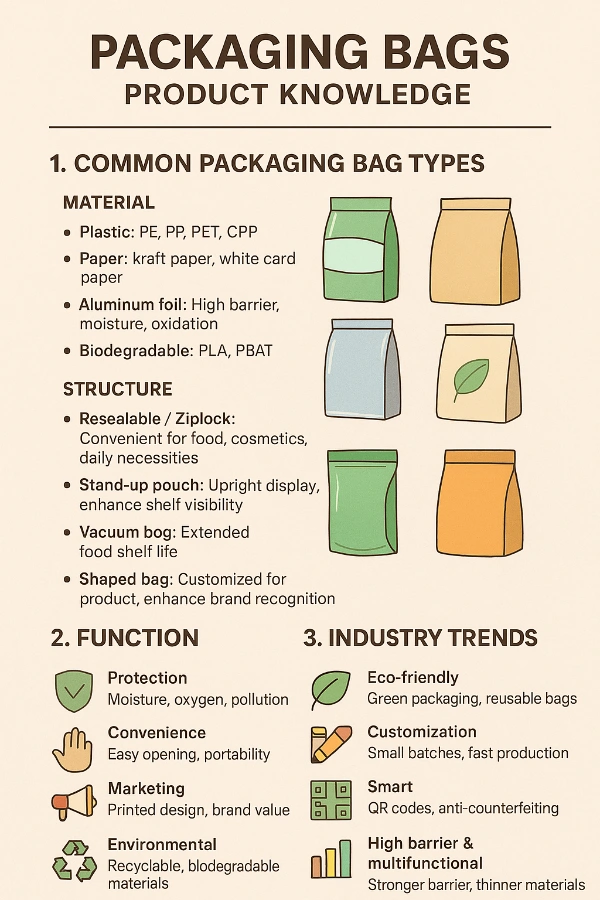
Summary
The packaging bag industry is more than just a tool for “packaging products.” Instead, it integrates multiple value propositions, including protection, marketing, environmental protection, and technology. With the upgrading of consumer demand and the promotion of environmental protection policies, packaging bags will develop in the direction of being more environmentally friendly, smarter and more beautiful in the future.


